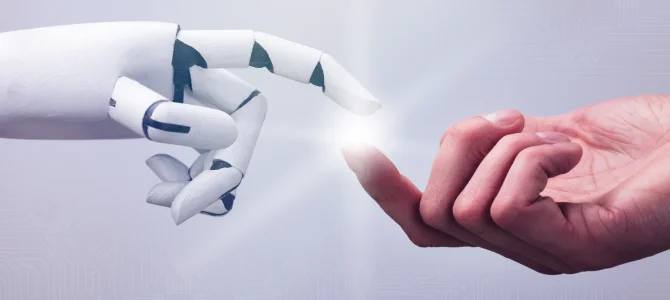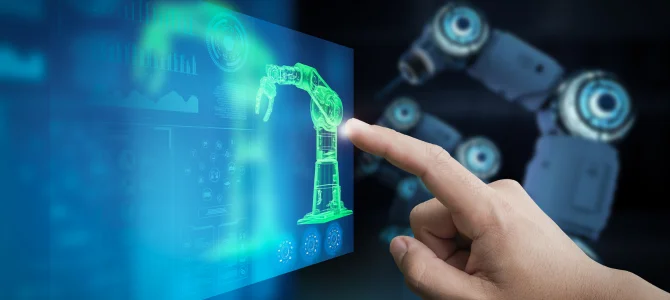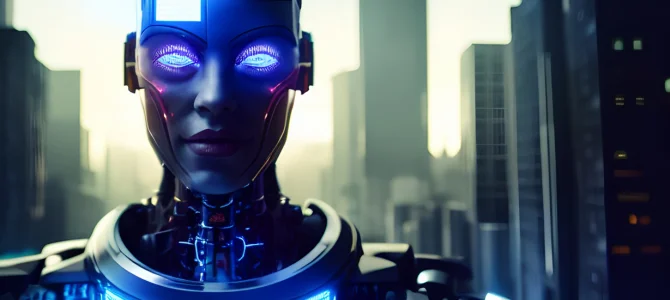When we envision robots, we might conjure images from science fiction—humanoid automatons dominating futuristic landscapes. While these fantasies remain largely fictional, the reality of robotics is shaping our world in profound ways. But what exactly are robots, and how will they alter our future?
The realm of robotics encompasses a vast array of machines, from industrial arms to automated vacuum cleaners. These machines, powered by robotics software engineering, are poised to revolutionize industries and redefine human interaction with technology.

What is Robotics?
Robotics is an interdisciplinary field of engineering that focuses on the design, development, and application of robots. These robots, ranging from automated assembly line workers to sophisticated AI companions, perform tasks traditionally carried out by humans.
The Future of Robotics
As advancements in sensor technology, AI, and machine learning continue to accelerate, robots are evolving beyond simple machines. From autonomous vehicles to intelligent personal assistants, robots are becoming increasingly integrated into our daily lives. These advancements promise to revolutionize industries such as healthcare, hospitality, manufacturing, and logistics, offering new levels of efficiency, safety, and convenience. As we look ahead, the future of robotics holds exciting possibilities for innovation and transformation across various sectors, shaping the way we live, work, and interact with technology.

Impact on Different Industries
The impact of robotics extends across various sectors, from healthcare to hospitality:
- Healthcare: In healthcare, robots equipped with advanced sensors and AI algorithms can monitor patients’ vital signs in real-time, ensuring timely interventions and personalized care. Additionally, robotic systems are automating medication dispensing, reducing errors and improving medication adherence.
- Hospitality: AI-powered robots are revolutionizing the hospitality industry by offering seamless guest experiences. From robotic concierges providing local recommendations to room service robots delivering meals, these innovations enhance guest satisfaction while reducing operational costs for hotels and restaurants.
- Technologies: The tech sector continues to lead in robotics adoption, with applications spanning various industries. From collaborative robots (cobots) assisting workers in manufacturing facilities to autonomous drones inspecting infrastructure, technology-driven advancements are driving efficiency and innovation across sectors.
- Manufacturing: Robotics automation has transformed manufacturing processes, optimizing efficiency and precision. Robots equipped with computer vision and machine learning algorithms can perform intricate tasks such as assembly, welding, and quality inspection with unparalleled speed and accuracy, leading to higher product quality and reduced production costs.
- Household: Cloud-connected robots are reshaping household dynamics by taking on mundane tasks and freeing up time for leisure and personal pursuits. From robotic vacuum cleaners navigating through homes autonomously to smart cooking assistants preparing meals, these robots offer convenience and efficiency to busy households.
- Industrial: In industrial settings, robots are addressing labor shortages and increasing productivity by performing repetitive tasks with consistency and precision. Collaborative robots work alongside human workers, enhancing safety and efficiency in manufacturing plants, warehouses, and logistics centers.
- Logistics: Robots are revolutionizing logistics operations by optimizing warehouse management and streamlining package delivery services. Automated guided vehicles (AGVs) and drones are increasingly used for inventory management, order picking, and last-mile delivery, reducing delivery times and costs.
- Military: Military forces deploy robots for a wide range of applications, including surveillance, reconnaissance, and bomb disposal. Unmanned aerial vehicles (UAVs) and ground robots enhance situational awareness and mitigate risks to human personnel in hostile environments.
- Travel: Robotics programming is transforming the travel industry by enhancing the customer experience and improving operational efficiency. Robots assist with airport check-ins, baggage handling, and security screening, reducing wait times and enhancing security protocols for travelers.
- Entertainment: Robotics technology enriches entertainment experiences, from interactive robot toys to immersive theme park attractions. Robots serve as performers, guides, and companions, providing engaging experiences for audiences of all ages.
- Space Exploration: Robots play a crucial role in space exploration, conducting missions to explore distant planets, moons, and asteroids. Robotic rovers like Perseverance and Curiosity gather data and samples from planetary surfaces, advancing our understanding of the universe and paving the way for future human exploration.
Impact on Different Industries

Whether you’re a business owner or just curious about the future, it’s crucial to grasp the upsides and downsides of this tech. From boosting efficiency to potential job shifts, delving into robotics sheds light on how it might shape our lives. Let’s dive into the perks and pitfalls to get a clearer picture of what lies ahead.
Advantages:
- Increased productivity: Robots can perform tasks with greater speed and accuracy than humans, leading to higher output and efficiency in various industries.
- Enhanced safety: By handling hazardous tasks, robots minimize the risk of workplace accidents and injuries, ensuring a safer working environment for employees.
- Consistency and quality: Robots deliver consistent results in manufacturing processes, reducing defects and ensuring product quality.
- Non-stop operation: Unlike humans, robots can operate continuously without the need for breaks, leading to uninterrupted production and improved efficiency.
- Flexibility: Modern robots are adaptable to changing tasks and environments, allowing for rapid reconfiguration and optimization of production processes.
Disadvantages:
- Economic displacement: The widespread adoption of robots may lead to job displacement and economic disruption, particularly in sectors heavily reliant on manual labor.
- Technological limitations: Despite advancements, robots still face limitations in complex decision-making and adaptability to unpredictable environments, constraining their applicability in certain tasks.
- Initial cost and maintenance: The high upfront costs of acquiring and implementing robotic systems, along with ongoing maintenance expenses, pose financial challenges for businesses.
- Dependency on programming: Robots rely on precise programming to execute tasks, making them vulnerable to errors or malfunctions if not properly configured or maintained.
- Ethical considerations: As robots become more autonomous, ethical dilemmas arise concerning their decision-making capabilities, accountability for actions, and potential impact on society.
Conclusion
The future of robot software engineering holds immense promise, with opportunities for innovation, exploration, and economic growth. By embracing robotics software engineering and AI, we can unlock new possibilities and shape a brighter future for humanity.Insoftex prides itself on its innovative approach to software development, harnessing the power of robotics to deliver cutting-edge solutions to clients. By integrating robotics software engineering into our development process, we ensure that our products are not only efficient and reliable but also at the forefront of technological advancement. Our commitment to leveraging robotics technology enables us to meet the evolving needs of businesses across various industries, driving progress and facilitating growth. With Insoftex, you can trust that you’re partnering with a forward-thinking team dedicated to building the future with robotics software engineering.







